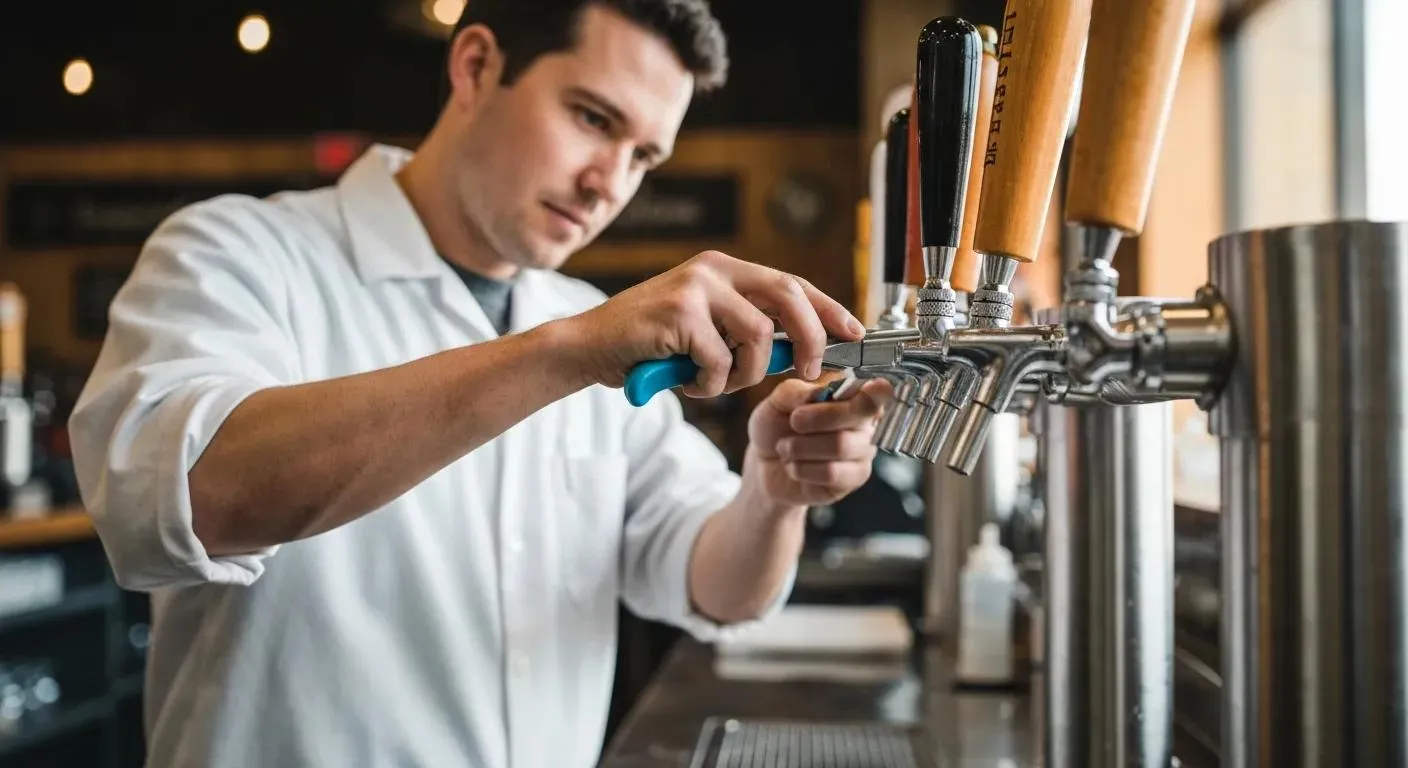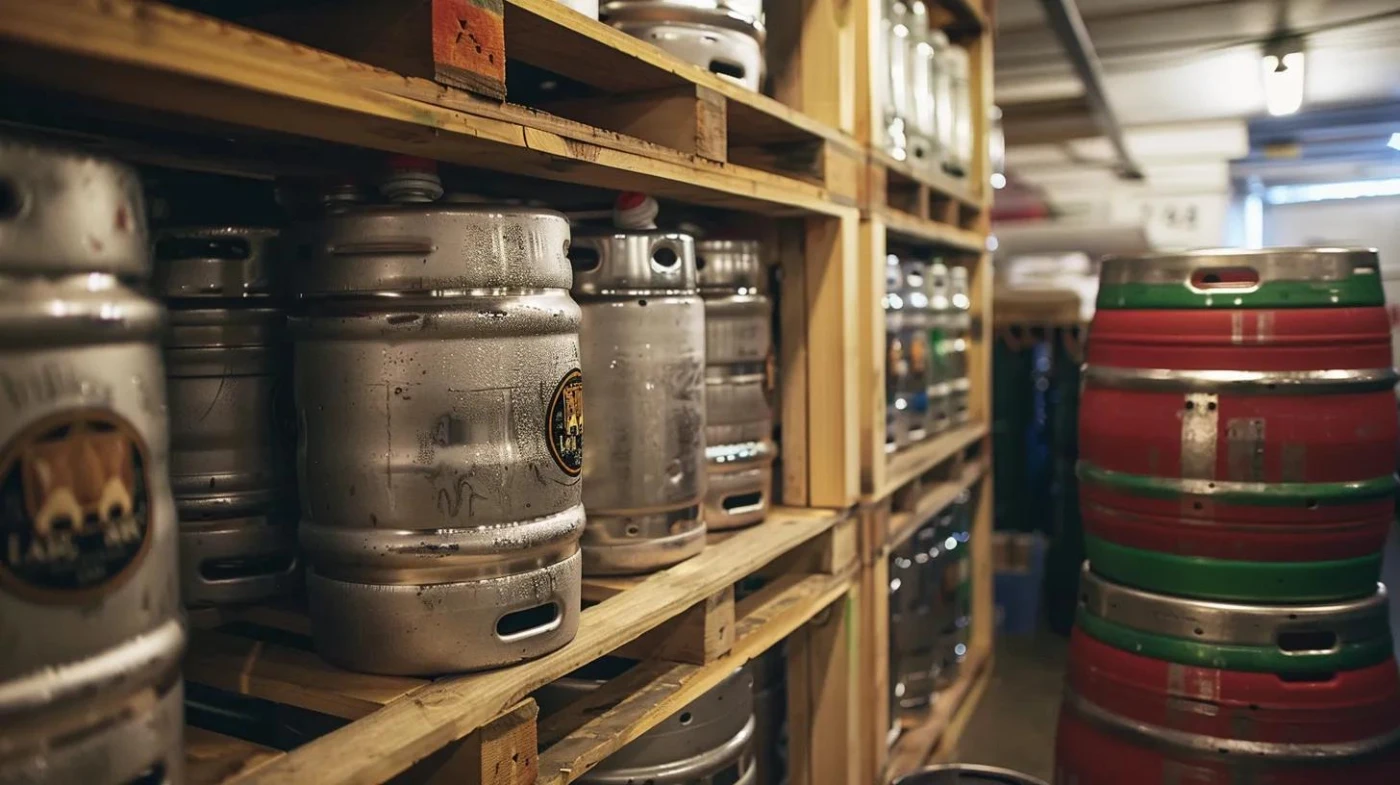Your Guide to Draft Beer System Installation Costs: What to Expect
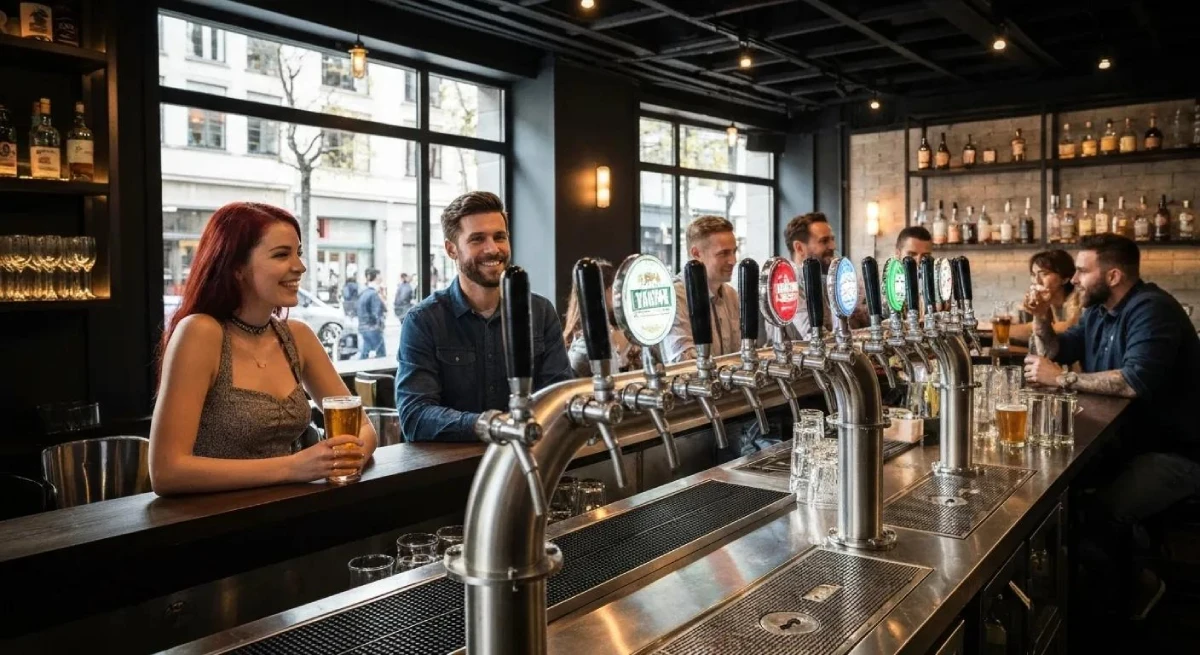
Setting up a draft beer system can range from a few thousand dollars for a simple home setup to over $30,000+ for a sophisticated, multi-tap glycol-cooled long-draw system. When considering the typical costs associated with installing a draft beer system, it's essential to break down the expenses by system type, individual components, labor, ongoing maintenance, and the expected return on your investment. At Renny’s Draft Solutions, we believe in transparent pricing and tailored installations to help both businesses and home enthusiasts plan their budgets with confidence. This guide will walk you through:
- Cost breakdowns for kegerators, direct draw, glycol systems, and self-pour setups.
- The main hardware price factors include lines, faucets, regulators, and refrigeration.
- Labor, and contingency fees you might encounter.
- Expenses for ongoing maintenance, cleaning, and repairs.
- Strategies to boost your return on investment by cutting down on waste and increasing sales.
What Are the Typical Costs for Different Draft Beer System Types?
Draft beer systems vary significantly in their complexity, the equipment they require, and the installation effort involved, all of which directly impact the initial investment. Choosing the right system type is key to ensuring proper temperature control, and consistent pours. For instance, a straightforward air-cooled kegerator is worlds away from a glycol system designed for extended runs. Here’s a cost comparison to give you a clearer picture:
These figures offer approximate starting point for your budget planning before we delve into the specifics of individual component costs.
How Much Does a Kegerator Installation Cost for Home and Commercial Use?
Installing a kegerator typically falls within the $1,500 to $3,500+ range, depending on the number of taps you want and the cooling capacity required. For home use (2–4 taps), the average cost is $1,500–$3,500, which typically covers a compact refrigerator, a single or dual tap tower, a CO₂ tank, and a regulator. Commercial units designed for 4–6+ taps typically cost between $4,000 and $12,500, accommodating larger towers, professional-grade cooling systems, and improved line insulation. A kegerator is an excellent, budget-friendly option for reliable draft beer service, whether for personal enjoyment or a small venue, before you consider more complex systems.
What Are the Price Ranges for Direct Draw Draft Beer Systems?
Direct draw systems are designed with the kegs positioned right underneath the faucets, which simplifies installation and keeps costs down to about $700–$1,500 per tap. This price typically includes a dedicated regulator ($60–$100), a keg coupler ($50–$150), a faucet and tower assembly ($200–$400), and about 5–10 feet of beer line ($10–$20 per foot). Since the kegs are kept within or very close to the refrigerated space, you don't need glycol chillers or insulated trunk lines. This makes direct draw systems a very cost-effective choice for smaller bars or spaces where efficiency is key, while still ensuring great pours.
How Expensive Is Installing a Long Draw Glycol-Cooled Draft Beer System?
Long draw glycol systems can cost anywhere from $10,000 to $30,000+, depending on the distance the beer needs to travel, the number of taps, and the capacity of the glycol chiller. These installations involve a glycol power pack ($1,500–$8,000+), insulated trunk lines ($10–$30+ per foot), remote keg refrigeration, such as a walk-in cooler ($10,000–$25,000), and additional labor for running and insulating the lines. This investment is essential for maintaining perfect temperature control over runs longer than 20 feet, making it ideal for busy venues that need consistent beer quality across many taps.
What Are the Costs of Self-Pour Draft Beer Systems and Their ROI?
Self-pour systems integrate digital metering hardware, software, and specialized dispensing towers. For a setup with 10–20 taps, you can expect costs ranging from $12,000 to $40,000. The hardware itself averages around $500 per tap, with installation labor typically running $3,000–$8,000. You'll also incur software licensing or subscription fees, typically around $1,500 annually. These systems are fantastic for boosting profitability by allowing customers to serve themselves, which reduces labor costs, minimizes waste, and encourages patrons to try a wider variety of drinks. Many businesses find that the higher upfront cost is recouped within 6–12 months, thanks to increased customer turnover and fewer over-pours.
Which Draft Beer System Components Affect Installation Costs the Most?
Several key components significantly influence the bulk of your installation budget. By carefully selecting these parts, you can optimize your overall investment.
- Beer lines and trunk lines typically cost $10–$30+ per foot, with prices varying based on insulation quality and length.
- Faucets, towers, and drip trays generally range from $150 to $400 per faucet assembly, balancing aesthetics with ease of use.
- Regulators, Couplers, & Gas Systems add about $200–$600 per tap to ensure precise carbonation and dispensing pressure.
- Refrigeration Units have a wide price range: compact kegerators cost $2,500–$6,500, while walk-in coolers and glycol chillers for larger setups can run $10,000–$ 25,000 or more.
While investing in high-quality lines and regulators is crucial for consistent performance, you'll need to budget carefully for the necessary refrigeration capacity and any aesthetic fixtures you desire.
How Much Do Beer Lines and Trunk Lines Cost Per Foot?
Beer lines are responsible for moving your product from the keg to the faucet. They usually cost $10–$30+ per foot, with higher prices for insulated trunk bundles that include glycol lines. Standard vinyl tubing is cheaper upfront, but it might not maintain your beer at the ideal temperature over longer runs. Selecting the correct type of line is crucial for maintaining beer quality and ensuring efficient cooling, even before considering the cost of faucets and towers.

What Are the Typical Costs for Faucets, Beer Towers, and Drip Trays?
When you combine faucets and towers, you're typically looking at a cost of $200–$400 per brand. The price depends on the materials used (such as stainless steel or brass), the finish, and any custom designs. Drip trays, which catch spills and aid in sanitation, add an additional $200–$800 each. If you opt for premium tower designs or want to incorporate branding, expect the cost to increase by approximately 20–30%. However, these can significantly make your bar a focal point and enhance the customer experience.
How Much Do Regulators, Couplers, and Gas Systems Add to Installation Costs?
Regulators, which maintain the correct CO₂ or mixed-gas pressure, usually cost $60–$120 per tap. Keg couplers, designed to fit specific keg types (such as D, S, U, or G systems), typically cost $50–$150 each. If you need bulk CO₂ tanks or gas blenders, factor in an additional $200–$500 for the system. Getting your gas management right is absolutely essential for consistent pours and keeping your beer fresh, making these components a non-negotiable investment.
What Are the Price Differences for Refrigeration Units Like Kegerators and Walk-in Coolers?
Air-cooled kegerators typically start at around $2,500 for a 2–to 4–tap unit and can range up to $6,500+ for commercial-grade 6-tap models. For larger operations, walk-in coolers and glycol chillers range from $10,000 to $25,000 or more, depending on the size (cubic footage), insulation quality (R-value), and the compressor's power. Choosing a refrigeration unit that's the right size for your needs is key to preventing temperature swings and ensuring you can handle your desired number of taps.
What Are the Labor and Additional Expenses Involved in Draft Beer System Installation?
Beyond the hardware itself, the costs of labor and meeting regulatory requirements can significantly impact your total project expense. Professional installers will take into account the system's complexity and local labor rates.
How Do Labor Rates and Installation Complexity Affect Total Cost?
Certified technicians typically charge between $75 and $200+ per hour. A simple kegerator swap might only take 2–4 hours, but running trunk lines and wiring digital meters for a self-pour system could require 20–40 hours of work. More complex jobs, such as extensive line runs or custom tower installations, will naturally require increased person-hours and coordination.
What Additional Fees Should You Expect During Installation?
You should anticipate that permitting, inspections, and a contingency budget will add about 5–10% to your overall project cost. Suppose you need electrical upgrades, plumbing modifications, or need to ensure compliance with building codes. In that case, these can add separate fees ranging from $500 to $2,000, all to ensure your system is safe and legally compliant. Planning for these charges upfront will help you avoid any unpleasant budget surprises.
What Are the Ongoing Maintenance, Cleaning, and Repair Costs for Draft Beer Systems?
Keeping your lines clean and your equipment in good working order is essential for the longevity of your system and, most importantly, for maintaining the quality of your beverages. Regular servicing prevents off-flavors and avoids lost revenue.
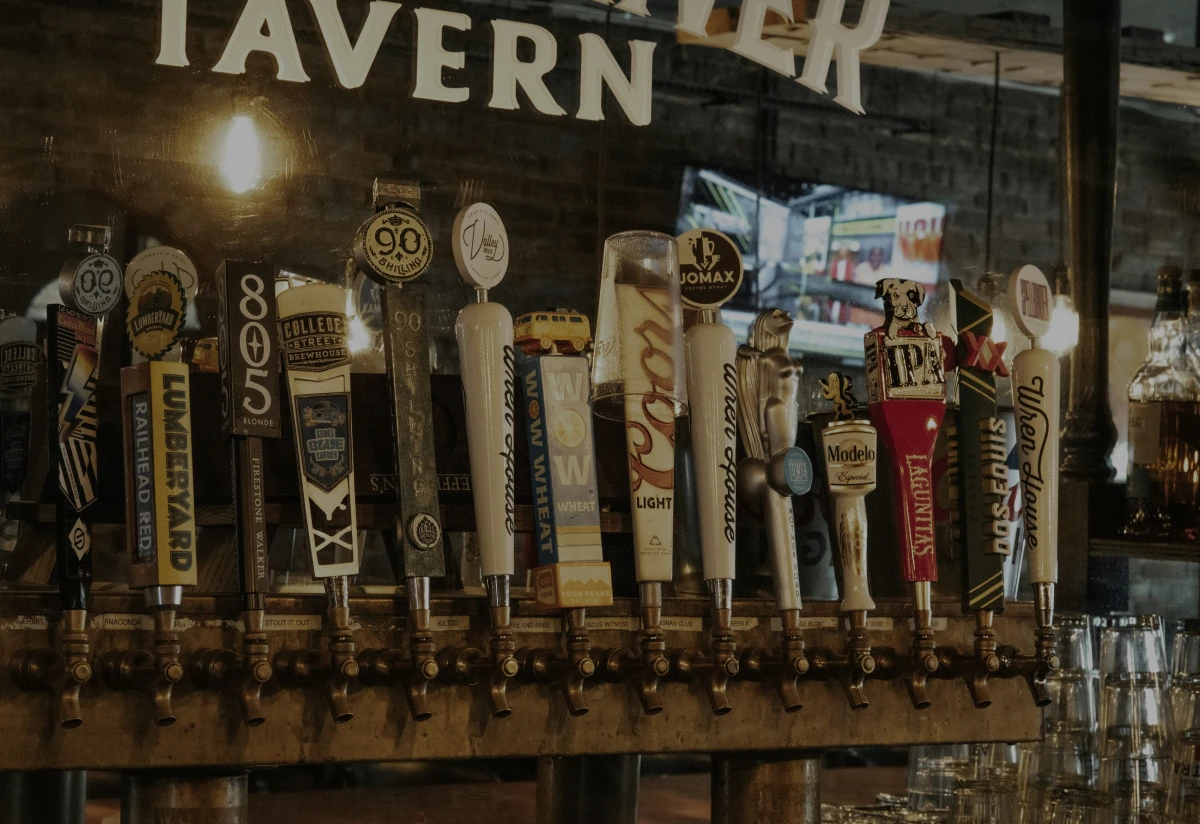
How Often Should Draft Beer Lines Be Cleaned and What Does It Cost?
To keep things fresh and prevent buildup, draft beer lines need an alkaline cleaning every two weeks and an acid cleaning every quarter. If you hire professionals, expect to pay around $10–$25 per tap for each cleaning service. For a 6-tap system, this could add up to $1,200–$3,000 annually.
Importance and Costs of Regular Draft Beer Line Cleaning
Regular cleaning of draft beer lines every two weeks or 14 days with alkaline solutions and quarterly acid cleaning is crucial for maintaining beer quality and preventing off-flavors. Professional cleaning costs typically range from $10 to $25 per tap per service. Studies indicate that consistent bi-weekly cleaning can lead to a 4-7% increase in sales, while infrequent cleaning (every 5-8 weeks) can result in a 7% decline in sales and significant lost revenue.
This research directly supports the article's claims regarding the recommended frequency and cost of draft beer line cleaning, as well as the direct impact of proper maintenance on sales and profitability.
What Are Common Repair and Upgrade Expenses to Plan For?
You can expect common repairs, such as rebuilding faucets ($50–$100 each), replacing regulator kits ($75–$150), or servicing glycol pumps ($200–$400 annually). It's wise to budget approximately 5–10% of the original system cost each year to cover parts replacement and minor upgrades, such as adding another tap or enhancing the appearance of your towers.
How Does Regular Maintenance Impact System Longevity and Cost Efficiency?
Consistent upkeep can extend your equipment's lifespan by 20–30%, significantly reduce the need for emergency service calls, and keep your system running at peak efficiency. Well-maintained systems can achieve up to 99% product recovery, which means less waste and a better return on your initial investment.
How Can You Maximize ROI and Profitability When Installing a Draft Beer System?
A thoughtfully planned draft beer installation is a powerful tool for increasing revenue, minimizing waste, and delighting your customers. When calculating your return on investment, consider both the direct cost savings and the potential for increased sales driven by variety and efficiency.
What Is the Typical Return on Investment for Commercial Draft Beer Systems?
Commercial draft beer systems often see their ROI within 6 months. This is mainly due to the high markups on draft beer (averaging 300–400% per keg) and the reduced labor costs associated more efficient bartender workflows. Better yields from less foam and consistently perfect pours further add to the savings over time.
Commercial Draft Beer System Costs and Return on Investment
Installation costs for commercial draft beer systems, such as 8-faucet glycol-cooled setups, can range from $10,000 to $14,000, potentially increasing to $17,500-$21,500 with a dedicated walk-in cooler. Draft beer offers significant profitability, with markups around 396% per keg and net profits of $640-$700 per keg. Many systems can achieve a return on investment within months, with some glycol systems recouping costs within the first 19 kegs sold.
How Do Draft Beer Systems Reduce Waste and Increase Sales?
Efficient glycol systems and precise regulators significantly reduce foam, increasing your beer yield by up to 30%. Efficient systems and a diverse tap list encourage customers to try more, potentially increasing per-guest revenue by 15–25%, especially with higher-margin craft beers.
What Factors Influence Draft Beer System Profitability?
The profitability of your draft beer system hinges on several factors, including the number of taps, the system's complexity/efficiency, and your specific beverage selection. Custom designs from Renny’s Draft Solutions ensure that your investment is perfectly aligned with your projected sales volume, available space, and brand identity, ultimately optimizing your long-term returns.
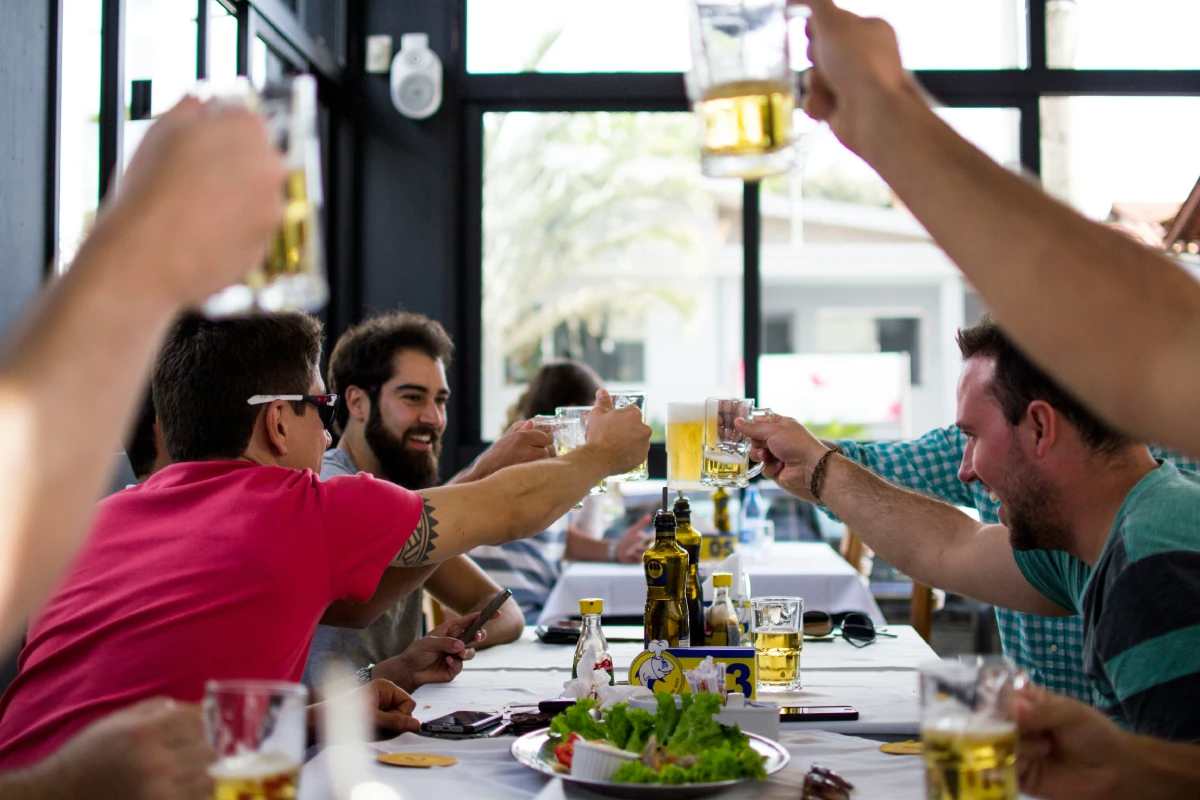
Installing a draft beer system requires a solid understanding of costs specific to the type of system, the investment in components, labor, maintenance budgets, and the key drivers of ROI. By carefully considering your options—from basic kegerators to advanced glycol and self-pour technologies—and partnering with experienced installers like us, both businesses and home enthusiasts can confidently plan their budgets, elevate their beer quality, and achieve profitable results. Ready for a personalized cost estimate and expert advice? Reach out to Renny’s Draft Solutions today. Cheers!

